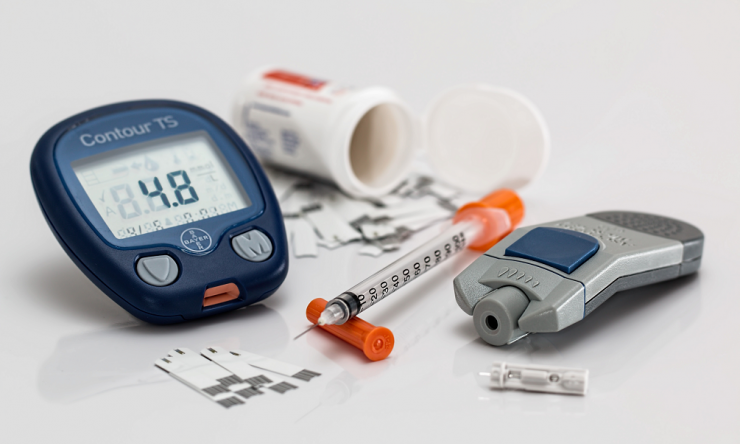NIH grant supports national study of atypical diabetes causes
Diabetes mellitus is the most common metabolic disease affecting hundreds of millions around the world. Although patients are typically classified as having type 1 or type 2 diabetes, increasingly many persons do not fall under these categories. They may have atypical or new forms of diabetes and need a more precise diagnosis and specific treatment. The National Institutes of Health has selected Baylor College of Medicine and the University of Chicago to lead a national, multicenter study to discover atypical and rare forms of diabetes, the Rare and Atypical Diabetes Network (RADIANT).
“Diabetes has always been classified as type 1 or type 2. This is an oversimplified and increasingly unhelpful way to classify a very complex disease,” said Dr. Ashok Balasubramanyam, professor of endocrinology, diabetes and metabolism at Baylor and principal investigator and director of the Baylor center for RADIANT. “More people are getting forms of diabetes that don’t fit into the traditional categories of type 1 and type 2.”
Features of atypical diabetes include very early onset diabetes, being an underweight adult with diabetes, being obese at a young age or having many members in a family develop diabetes in childhood or adolescence. People with atypical diabetes are usually given a diagnosis of type 1 or type 2 diabetes by their doctor, but experience a different disease course, different complications or variable responses to standard diabetes medications.
RADIANT expects to screen 1,500-2,000 people who believe they may have atypical forms of diabetes. Researchers will select many of those who are screened to gather detailed clinical and biological information through a wide range of tests, including genome sequencing, blood samples, physical exams and questionnaires, and many may get additional specialized tests based on their specific characteristics. Family members of enrolled participants may be invited to participate in the study, particularly if the condition appears to be an inherited trait. Balasubramanyam urges participants from minority groups to apply for the study, as different forms of atypical diabetes are present in minority populations.
“We are looking for new forms of diabetes and anticipate that many atypical forms are highly represented in minority and immigrant populations. We are also looking for rare types of diabetes due to specific genetic defects, because we now have the tools to both identify and possibly treat them with precision medicine,” Balasubramanyam said. “If you’re a clinician and see a patient with diabetes that appears unusual, please refer them to the study. If you are a diabetes patient and think you may have atypical features, please fill out the RADIANT screening questionnaire to find out if you are eligible for the study.”
For more information and to complete a screening questionnaire, visit https://www.atypicaldiabetesnetwork.org/ or contact radiantstudy@bcm.edu or 713-798-5757.
RADIANT was launched on Sept. 30, 2020. Baylor and the University of Chicago will serve as the lead centers for the study. Baylor and the Broad Institute in Cambridge, Mass., serve as the RNA and DNA sequencing centers. The University of South Florida is the data coordinating center for the study, and the University of Florida, Gainesville, serves as the central laboratory.
Other clinical sites participating in RADIANT include Columbia University, Duke University, Geisinger Health System, Indiana University, University of Maryland, Massachusetts General Hospital, University of Michigan, NorthShore University Health System, Seattle Children’s Hospital, SUNY Downstate Health Sciences University, University of North Carolina, University of Washington, Vanderbilt University and Washington University-St. Louis.











